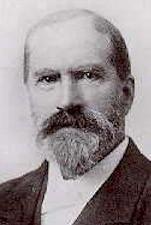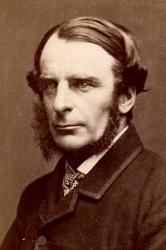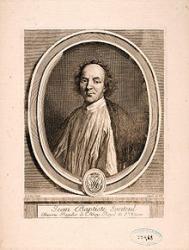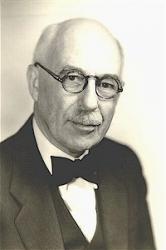Planning worship?
Check out our sister site, ZeteoSearch.org,
for 20+ additional resources related to your search.
- |
User Links
Person Results
George Thomas Thalben-Ball
1896 - 1987 Person Name: G. Thalben-Ball Harmonizer of "BELMONT" in Christian Science Hymnal (Rev. and enl.) London, England; organist
George Thomas Thalben-Ball
Eliza Scudder
1821 - 1896 Author of "Thou grace divine, encircling all" in University Hymns Scudder, Eliza , niece of Dr. E. H. Sears, (q.v.), was born in Boston, U.S.A., Nov. 14,1821, and now (1888) lives in Salem, Massachusetts. Formerly an Unitarian, she some time ago joined the Protestant Episcopal Church. Her hymns in common use are:—
1. From past regret and present[faithlessness] feebleness . Repentance. In the Quiet Hours, Boston, 1875.
2. I cannot find Thee! Still on restless pinion . Seeking after God. Appeared in Longfellow and Johnson's Unitarian Hymns of the Spirit, 1864.
3. In Thee my powers and treasures live. Faith.
4. Life of our life, and light of all our seeing! Prayer. In the Boston Quiet Hours, 1875.
5. The day is done; the weary day of thought and toil is past. Evening. In Sermons and Songs of the Christian Life, by E. H. Sears, Boston, 2nd ed.,1878, p. 296, entitled "Vesper Hymn," and dated "October, 1874." This is possibly her finest hymn.
6. Thou grace divine, encircling all . Divine Grace. Appeared in Dr. E. H. Sears's Pictures of the Olden Time, as shown in the Fortunes of a Family of Pilgrims, 1857. It was written in 1852, and included in the Boston Hymns of the Spirit, 1864. It has sometimes been taken as "An Ancient Catholic Hymn" (Universalist's Psalms & Hymns 1865), but in error.
7. Thou long disowned, reviled, oppresst. The Spirit of Truth. In the Boston Hymns of the Spirit, 1864.
Of these hymns, Nos. 2, 6, and 7 are in Dr. Martineau's Hymns, 1873. Some of Miss Scudder's poetical pieces appeared in Dr. Sears's Monthly Religious Magazine. Her Hymns and Sonnets, by E. S., were published by Lockwood, Brooks & Co., Boston, 1880. From this her hymn "Thou hast gone up again" (Ascension), is taken. [Rev. F. M. Bird, M.A.]
-- John Julian, Dictionary of Hymnology (1907)
====================
Scudder, Eliza, pp. 1035, L, 1589, i. Miss Scudder died in 1896. Her Hymns & Sonnets, with biographical notes, &c, by Horace E. Scudder, was published by Houghton & Mifflin, 1897. In The Pilgrim Hymnal, 1904, the hymn," Thou Life within my life," begins with st. ii. of "From past regret and present [faithlessness] feebleness," p. 1035, i. 1), which was written in Feb. 1871. Another of Miss Scudder's hymns is “ Let whosoever will enquire" (New Heaven), from which "My God, I rather look to Thee," in Horder's Worship Song, 1905, is taken.
--John Julian, Dictionary of Hymnology, New Supplement (1907)
Eliza Scudder
Joseph Dacre Carlyle
1759 - 1804 Person Name: Joseph D. Carlyle Author of "Lord, when we bend before thy throne" in Hymns for the Living Age Joseph Dacre Carlyle was born at Carlisle, in 1759. He became Professor of Arabic in the University of Cambridge, in 1794, and afterwards Vicar of Newcastle-on-Tyne. He was the author of several works. His death occurred in 1804.
--Annotations of the Hymnal, Charles Hutchins, M.A., 1872
======================
Carlyle, Joseph Dacre, B.D., some time Professor of Arabic in the University of Cambridge, and afterwards Vicar of Newcastle-on-Tyne, was born at Carlisle, June 4, 1758. In 1799 he accompanied the Earl of Elgin to Constantinople with the object of exploring the literary treasures of the public Library of that city. He extended his journey into Asia Minor, and the islands and shores of the Archipelago. He died at Newcastle, April 12, 1804. Amongst his manuscripts were Poems, suggested chiefly by Scenes in Asia Minor, Syria, &c. These were published under that title, in 1805, by Susanna Maria Carlyle. His hymns, which appeared in J. Fawcett's Psalms & Hymns, Carlisle, 1802, include, "Lord, when we bend before Thy throne "—his most popular production; a paraphrase of the Lord's Prayer,"Father of heaven, Whose gracious hand"; and "Lord, when we creation scan." His works include Specimens of Arabian Poetry, 1796.
--John Julian, Dictionary of Hymnology (1907)
Joseph Dacre Carlyle
Jonathan Allen
Author of "Sinners, will you scorn the message" in Evangelical Hymnal Allen, Jonathan. Concerning this hymn-writer, to whom is credited the hymn, "Sinners, will you scorn the message?" we can only say that this hymn appeared in Hymns adapted to Public Worship, collected from various Authors, Exeter, S. Woolmer, 1801, edited by Richard Pearsell Allen, Minister of Castle Street Meeting, Exeter; and that in D. Sedgwick's marked copy of John Dobell's New Selection, &c., 1806, it is attributed to Jonathan Allen. What authority Sedgwick had for this ascription we cannot determine. It is through him that it has gained currency. Allen's hymn, "Sinners, will you scorn, &c," is sometimes given with stanzas i. and ii. transposed, as "Hear the heralds of the Gospel," as in the American Baptist Praise Book, N. Y. 1871. [William T. Brooke]
-- John Julian, Dictionary of Hymnology (1907)
Jonathan Allen
H. D. Rawnsley

1851 - 1920 Person Name: Hardwicke Drummond Rawnsley, 1851-1920 Author of "O God whose will is life and good" in The Hymnal Rawnsley, Hardwicke Drummond, M.A., son of the Rev. R. D. B. Rawnsley, M.A., sometime Prebendary of Lincoln, was born at Shiplake-on-Thames, Sept. 28,1850, and educated at Ball. Coll., Oxford, B.A. 1875, M.A. 1883; D. 1875, P. 1877; Curate of St. Barnabas, Bristol, 1875-77; Vicar of Low Wray, Lancashire, 1878-83, and Vicar of Crosthwaite since 1883. He became Rural Dean of Keswick 1883, Hon. Canon of Carlisle 1893, and Proctor in Convocation 1905. His publications include: Notes for the Nile, 1892; Literary Associations of the English Lakes, 1894; Memoir of Harvey Goodwin, Bishop of Carlisle, 1896; Sermons on the Logia, 1897, and various books of Poems and Sonnets. The best-known of his hymns are:—
1. Hark! I hear the trumpet sounding. [Mission Hymn for Children.] In the Ch. Missionary Hymn Book, 1899.
2. Lord God, our praise we give. [In Praise of Nature]. Contributed to the 1904 ed. of Hymns Ancient & Modern.
3. Now trumpets cease your sound. [Peace.] In Hymns of the Kingdom . . . for the use of the Christian Democracy. Norwich, 1903.
4. Saviour, Who didst healing give. [St. Luke.] Written at Crosthwaite Vicarage, Dec. 1, 1905, and included in The English Hymnal 1906.
5. Lord Jesu, Who at Lazarus' tomb. [Memorial of the Dead.] Written at Crosthwaite Vicarage, Dec. 2, 1905, for The English Hymnal, 1906.
6. Lord, Who gavest streams and fountains. [For a Dual School.] Written in 1898 at Keswick for the Holiday Association of the Home Readers' Union, and included in the Keswick School Hymn Book.
--John Julian, Dictionary of Hymnology, New Supplement (1907)
H. D. Rawnsley
Charles Kingsley

1819 - 1875 Person Name: C. Kingsley (1819-1875) Author of "From you all skill and science flow" in Hymns for Today's Church (2nd ed.) Kingsley, Charles, M.A., son of Charles Kingsley, of Battramsley, in the New Forest, was born June 12. 1819. at Home Vicarage, Devon. In 1838 he entered Magdalene Coll. Cambridge, and graduated as first class in classics, and senior optime. Subsequently Rector of Eversley 1814-1875; Canon of Chester 1869-1873; and Canon of Westminster 1873-1875. He held also other important appointments. He died at Eversley, Jan. 23, 1875. Canon Kingsley's prose works are too well known to be enumerated here, and his poetical productions have little in common with hymnology. Three of his pieces have come into use as hymns:—
1. Accept this building, gracious Lord. [Hospitals.] "Mrs. Kingsley's account of this hymn is:—
"On the 4th of December [1871], Lord Leigh laid the foundation stone of the working men's block of the Queen's Hospital at Birmingham with masonic honours, and the following simple hymn, which Mr. Kingsley had been requested to compose for the occasion, was sung by a choir of 1,000 voices:—
'Accept this building, gracious Lord,
No temple though it be;
We raise it for our suffering kin,
And so, good Lord, to Thee.'"
The hymn in full follows in 6 stanzas of 4 lines. (Charles Kingsley: His Letters and Memoirs of his Life. 1876, vol. ii., p. 370.) From this the hymn, well-known in American collections and in a few in Great Britain, “From Thee all skill and science flow," is taken. It is composed of stanzas iii.-vi.
2. My fairest child, I have no song to give you. [Purity and Courage.] Appeared in his Andromeda and Other Poems, 1858, p. 64, in 2 stanzas of 4 lines and entitled "Farewell." In the Life and Works of Kingsley, Poems, vol. 16, 1902, it is given in 3 stanzas of 4 lines, and inscribed to "C. E. G." and the appended date is "February 1, 1856." The addition of the extra stanza, as given in Mrs. Kingsley's Charles Kingsley: His Letters, &c,
1876, vol. ii., p. 236, is thus explained: "The Farewell' to his niece Mrs. Theodore Waldron, then Charlotte Grenfell, was written this year [1856], and as the second verse, by some mistake, was not published, it is given entire here." At the end of the poem the place and date are given as "Ray” Lodge, 1856." The lines so frequently included in hymnals for Girls' High Schools, "Be good, sweet maid, and let who will be clever," are from this poem.
3. Who will say the world is dying [The Coming Kingdom.] In his Andromeda and Other Poems, 1858, p. 123, in 3 stanzas of 8 lines and entitled "The World's Age." is dated 1849. In Horder's Worship Song, 1905.
--John Julian, Dictionary of Hymnology, New Supplement (1907)
Charles Kingsley
Jean-Baptiste de Santeul

1630 - 1697 Person Name: Jean Baptiste de Santeuil, died 1697 Author of "Behold the messengers of Christ" in The Order for Evensong Santeüil, Jean-Baptiste de, was born in Paris of a good family on May 12, 1630. He was one of the regular Canons of St. Victor, at Paris, and, under the name of Santolius Victorinus, was distinguished as a writer of Latin poetry. Many of his hymns appeared in the Cluniac Breviary 1686, and the Paris Breviaries 1680 and 1736, and several have been translated into English, and are in common use in Great Britain and America. He was very jocose in disposition and singular in his habits. When on a journey he died at Dijon, Aug. 5, 1697. His Hymni Sacri et Novi were published at Paris in 1689, and again, enlarged, in 1698. [George Arthur Crawford, M.A.]
--John Julian, Dictionary of Hymnology (1907)
Jean-Baptiste de Santeul
James Arnold Blaisdell

1867 - 1957 Person Name: James A. Blaisdell, 1867-1957 Author of "Beneath the Forms of Outward Rite" in Hymnbook for Christian Worship James Arnold Blaisdell was born in Beloit, Wisconsin, December 15, 1867. He graduated from Beloit College in 1899 and became a minister, then returned to Beloit College as Chair of the Bible Department and director of the library. In 1910 he became of Pomona College (California). The college grew under his leadership. In 1921 he made the decision to cap enrollment to keep the college small. He soon developed the vision of small liberal arts colleges sharing common facilities. He became head of the Claremont Colleges Consortium in 1927.
Dianne Shapiro, from Anderson, Seth. "James Blaisdell-The Visionary". Claremont Conversation. Archived from the original on 2007-09-28 (https://web.archive.org/web/20070928024653/http://claremontconversation.org/tcourse/tndy4010/page/James+Blaisdell-The+Visionary) and Find A Grave website (retrieved 11/11/2023)
James Arnold Blaisdell
Julia A. Carney
Person Name: Miss Fletcher Author of "Think gently of the erring one" in Jubilate Deo See Carney, T. J., Mrs., b. 1823
Julia A. Carney


 My Starred Hymns
My Starred Hymns

